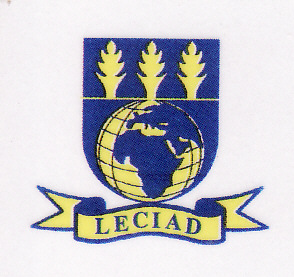A mandatory independent research work of not more than twenty thousand (20,000) words, and not exceeding eighty (80) pages (excluding bibliography, figures, tables, photographs, and appendices) earning twelve (12) credits must be submitted to the School of Graduate Studies through the Centre for examination by internal and external assessors.
|
The salient objective of this course is to strengthen students’ ability to conduct and analyze complex research material. Also, it is designed to promote students’ understanding of the major world-views that inform and shape research questions in international relations, and how these orientations dictate the choice of different research methodologies. The entire course deals with both theory and applied forms of research. |
This course is designed to promote students’ understanding of the foundations of International Relations and analyze in particular, its classical, evolutionary, and contemporary frameworks. It examines the scope, methods, and appropriate tools for analysis as well as the contending theories in the field such as Realism, Liberalism (Idealism), and Globalism. It uses these theoretical imperatives as frameworks for analyzing other theories such as neo-realism, structuralism, and constructivism, feminism, post-modernism, and post-industrialism. |
The course seeks to develop students’ abilities to understand and interpret the language used in diplomatic engagements. It further seeks to inculcate in the students a culture of diplomacy which would be applied in their dealings with foreign dignitaries. Although the course is less theoretical, it begins with the conceptualization of diplomacy and communication, and examines their nature and forms. |
This course seeks to provide students with an in-depth understanding of the markets, political, and other forces that tend to drive the international economic order. It also highlights, in considerable detail, the private and public actors as well as the institutions that shape international trade, financial developments, and policies. |
This course is geared towards developing students’ abilities to comprehend the cultural practices that guide the conduct and behaviour of the diplomatic community. It traces the evolution of diplomatic practice and examines the diplomatic land scape, forms, nature and fundamental principles that underpin the subject matter of Diplomatic Practice. Furthermore, the course attempts to provide a detailed distinction between terms such as diplomacy, foreign policy and international relations. |
This course aims to promote students’ knowledge and understanding of the fundamental and salient theoretical, and conceptual imperatives that underpin the study of International Law. It also stimulates students’ interests in the everyday issues and developments that have shaped global trends in international public law. It devotes efforts to examining some of the growing contentious issues that have dominated the thoughts of scholars of International Law. |
This course seeks to develop students’ communication skills in some of the modern international languages. It enlightens students on salient technical terminologies necessary to read and write the languages. The course further examines important areas of language study such as phonetics, oral and written comprehensions and sentence structures. It places special emphasis on the development of conversational/verbal skills particularly, inter-personal communication. |
The goal of this course is to enable students to analyze the emerging discourse concerning African agency in international relations and its itmodernizationshaping the global normative framework. It begins by examining African agency theory to provide content to examine its position in contemporary geopolitical and economic affairs. |
The purpose of this course is to develop students’ knowledge of the workings of governments. It is further designed to provide students with deeper insights on the various facets of governmental operations and how they accomplish the task of delivering public goods to the citizenry. The course further examines the nature and scope of the field of public administration, the classical debates of Wilsonian seminar work on politics-administration dichotomy and public-private dichotomy. |



